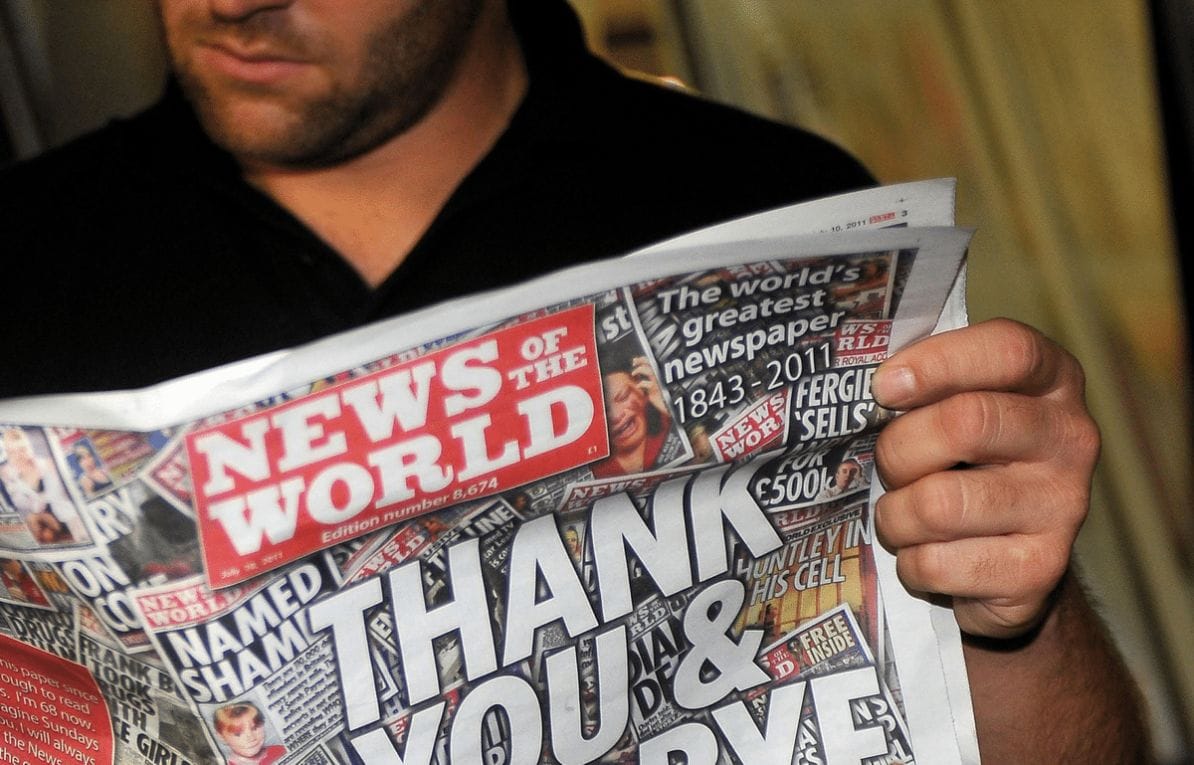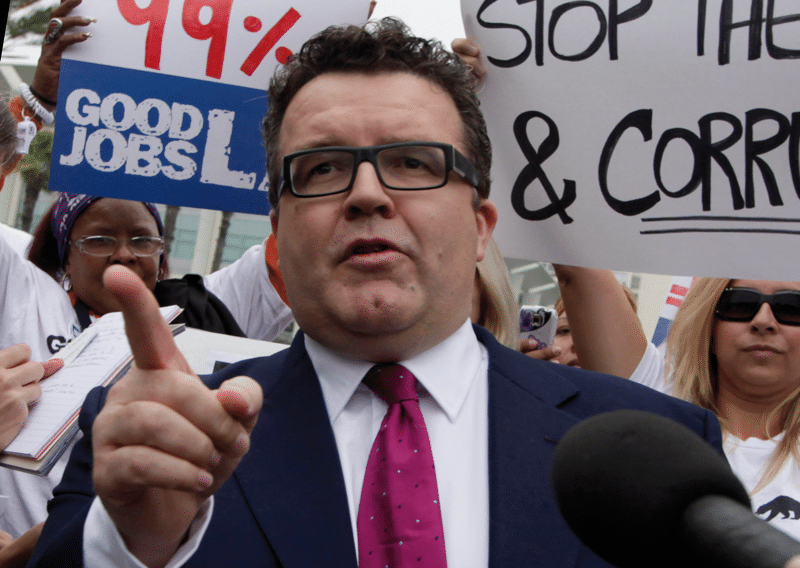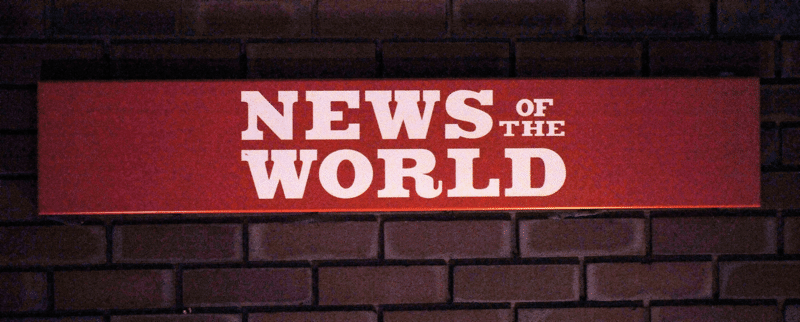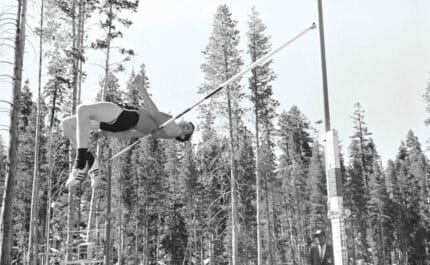Moment that mattered: The News of the World is embroiled in a phone-hacking scandal
Back in DG#4 in 2011, the Labour MP talked to us about the beginning of the end for the News of the World

Nick Ut / AP / PA Images
4th July 2011 (Taken from: #4)
In 2011, Tom Watson MP – now deputy leader of the Labour party – was a member of the Culture, Media and Sport Select Committee, which was examining allegations about the illegal practice of breaking into private voicemail accounts carried out by members of the UK press.
Three months after the most outrageous example came to light – in which the News of the World was caught having hacked into the phone of murdered teenager Milly Dowler – Watson spoke to Delayed Gratification about the moment the story broke, and the emerging scandal that would come to engulf the shamed tabloid and appal the nation…
“The day before Nick [Davies, the Guardian journalist] broke the story on the Guardian’s website, he rang me up and said, ‘I’m ready and I’m doing it tomorrow afternoon.’ I said to him that this was so significant that as soon as it went up on the site I would raise it as a point of order in the House.
“Throughout the afternoon I kept anxiously checking my computer screen. He broke the story at 4.35pm and even then, reading it on the screen, I gasped at the magnitude of what was on the page. With typical Nick Davies understatement, he had put the allegation of the deleted voicemail messages on paragraph six.
[Later in 2011, new evidence in the police investigation caused the Guardian to revise this particular allegation – that News of the World journalists had deleted Milly Dowler’s messages in order to make room for new ones to come in, and had thus been responsible for her family’s mistaken belief that she was still alive. According to the police, the deletions were unlikely to have been connected with the phone-hacking actions of journalists.]
“I ran to the Chamber and got up to raise it as a point of order. I looked around and I could see every MP looking at me as if to say, ‘You’ve just made a mistake there; you said Milly Dowler and what you actually meant was Milly Dowler’s parents.’
“I left the Chamber sharpish and David Heath, the Deputy Leader of the House, came after me. He said, ‘Tom, stop! You said Milly Dowler’s phone was hacked. Did you mean her parents’ phone?’ I said, ‘No, David, I meant Milly Dowler’s phone.’ He looked absolutely appalled, then walked swiftly back to his office – I assume he went to phone his colleagues in government to let them know what had happened.

Photo: AP / PA Images
“I don’t think there could be anything worse than what was done to the Dowlers. Their case ripped open a misleading paradigm about how the press works. Some of the tabloid press would never do what the News of the World did – I don’t want to generalise. But what they did was rip open a myth that this sort of thing was robust and assertive investigative journalism in a rich British tradition – and actually it wasn’t, it was just criminality and no one could deny it from that point on.
“This allowed two things to happen: it forced other newspapers who were in denial about the hacking dispute to confront it as a story, which was difficult as there had been an unwritten rule of ‘don’t throw stones at your neighbour’. But it also allowed them to find space to have a proper policy debate about ethics in journalism and that debate is ongoing. Some people are taking this seriously and some people are essentially trying to make it go away again, but it is not going to go away. No amount of PRs, lawyers, columnists or editors in denial will make it go away.
“The case is widening and the array of data is growing. Former employees of news organisations are now talking to me in a way they wouldn’t have before and each time we need to calibrate what they’ve said and work out whether they’ve alleged any further criminality so we can report it to the police and work out what the response is. I think I’m going to be with this for another six months to a year.

Photo: AP / PA Images
“There’s clearly a bit of a PR fightback starting too. As one journalist said to me, ‘the market is going to rebalance itself and you’re going to come in for a bit of flack in the next few months’. You can see the machine slowly whirling around to start that fightback.
“At the Society of Editors Conference, the editor of The Times, James Harding, accused me of pursuing an agenda. As I said in a piece in my local paper, I don’t know what qualifications you need to be the editor of The Times – but he’s absolutely right about me having an agenda.”
Tom Watson has since co-authored a book on News Corporation and the phone-hacking scandal, Dial M for Murdoch, written with Martin Hickman and published in 2012.
Slow Journalism in your inbox, plus infographics, offers and more: sign up for the free DG newsletter. Sign me up
Thanks for signing up.








